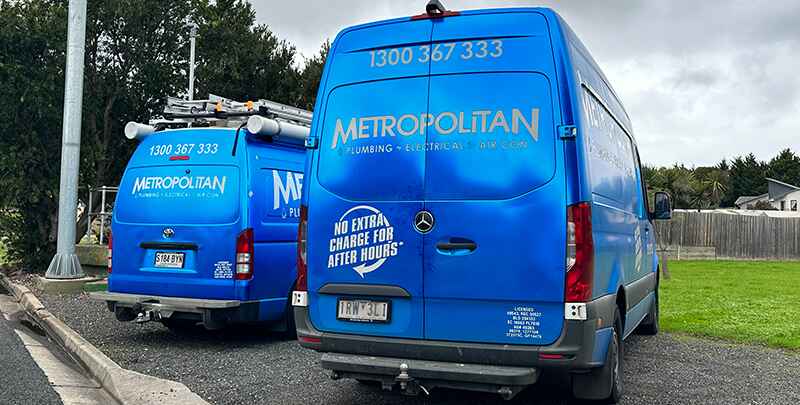
What is the Most Common Indication of a Gas Leak?
Gas leaks are a serious concern that every homeowner should be aware of. Whether you use natural gas for heating or cooking, understanding the indicators of a gas leak is crucial. Ignoring the signs can lead to dangerous consequences, including carbon monoxide poisoning, fires, and even death.
Here are the most common indications of a major gas leak. We also run through the steps to take of what to do when you have leaking gas to ensure the safety of your household.
Understanding Natural Gas
Natural gas is a highly efficient energy source. Australian households use it widely for various purposes, from heating water to cooking meals. Gas is colourless and odourless in its natural state. To make a leak in your natural gas supply more detectable, your gas distribution network adds an odorant called mercaptan before it reaches your home.
Common Indications of a Gas Leak
From foul smells to strange sounds and health-related symptoms, there are among the more common ways to detect a gas leak inside your home.
- The smell of rotten eggs: One of the most obvious signs is an unpleasant, strong smell similar to rotten eggs. Take immediate action if you smell gas in your home.
- Hissing and whistling sounds: A subtle hissing sound or whistling noise near your gas meter, gas lines, or gas appliances can indicate a leak.
- Visible dust clouds: A gas leak can sometimes cause dust or debris to become airborne. If you notice an unexplained cloud of particles in your home, it could be a sign of a gas leak.
- Standing water bubbles: If you see bubbles rising from standing water near your gas lines or appliances, it could indicate a gas leak. Gas can displace water, causing bubbles to form.
- A drop in efficiency from appliances: Gas appliances are known for their efficiency. However, if you notice a sudden drop in the efficiency of your gas-powered equipment, it may be due to a gas leak.
- Physical symptoms: Gas leaks can cause physical symptoms, such as breathing difficulties, chest pain, pale skin, and respiratory problems. If you or your family experience these symptoms, seek fresh air immediately.
- Mood changes: Prolonged exposure can lead to mood changes and irritability. If you or your loved ones notice unexplained shifts in mood, consider the possibility of a gas leak.
- Carbon monoxide detectors: Installing carbon monoxide detectors in your home is a proactive step to detect gas leaks. These detectors can alert you to elevated carbon monoxide levels, a by-product of incomplete combustion.
Keeping your senses finely tuned will help you pick up on the key signs of a gas leak. Whether you smell gas, hear leaking-like noises or experience symptoms, you’ll need to take action ASAP.
Immediate Actions to Take When You Smell Gas
If you suspect a gas leak based on any of the above signs, follow these steps to protect your life or property:
- Avoid naked flames and sparks: Firstly, do not use light switches, electrical appliances, pilot lights, or any ignition sources, including cell phones. These can ignite the gas, so avoiding them is critical.
- Open doors and windows: If it is safe to do so, open doors and windows to allow fresh air to ventilate the area, helping to disperse the gas.
- Turn off the gas: If it’s safe and you know how to, turn off the gas supply at the main gas meter or valve. This step is vital in preventing further gas from entering the area.
- Shut off gas appliances: Next, turn off all the gas appliances in your home to prevent any disaster from occurring.
- Evacuate: Leave the area immediately, ensuring all family members and pets are also at a safe location.
- Call emergency services: Once you are in a safe location, dial the emergency number (e.g., 1800 GAS LEAK) or your local gas distributor and report the leak. They will send trained professionals to handle the situation.
- Contact a gas fitter: After the emergency has been addressed and it’s safe to do so, contact a certified gas fitter to inspect and repair the gas leak. Do not attempt to fix it yourself.
Remember, it’s essential to never smoke or use open flames near a suspected gas leak. Safety should always be your top priority.
Preventing Gas Leaks
Prevention is always the best approach when it comes to gas leaks. Here are some proactive measures you can take to reduce the risk:
- Yearly inspections: A certified inspector schedules annual inspections of your gas appliances and gas lines. They can identify and address potential issues before they become major problems.
- Use certified professionals: When installing or repairing gas appliances, hire a licensed gas fitter. This ensures that the work is done safely and up to code.
- Carbon monoxide detectors: Install carbon monoxide detectors in your home, especially near sleeping areas and gas appliances. Test them regularly to ensure they are functioning correctly.
- Educate your family: Teach your family about the signs of a gas leak and what to do in an emergency.
- Maintain gas appliances: Keep your gas appliances well-maintained. Follow the manufacturer’s recommendations for servicing and cleaning.
- No DIY repairs: Never attempt to repair a gas leak on your own. Leave it to the professionals.
Stay Safe with Metropolitan Plumbing
Your safety is our top priority at Metropolitan Plumbing. We’ve covered the most common indications of a gas leak. We’ve also highlighted the importance of acting swiftly if you smell burning natural gas or suspect gas leaks are increasing in your home. Our expert team specialises in detection services and repairs for gas-burning appliances, ensuring your peace of mind.
Don’t hesitate to reach out to your trusted local gas company, Metropolitan Plumbing, for all your gas appliance needs. Stay safe and let us take care of your gas-related concerns.
Please note: This information is provided for advice purposes only. Regulations differ from state to state, so please consult your local authorities or an industry professional before proceeding with any work. See our Terms & Conditions here.
Published: 2023-09-26

















